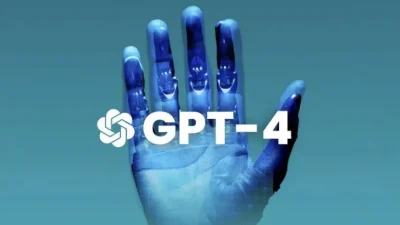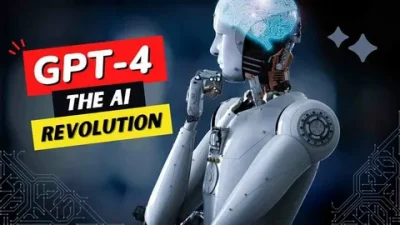
The rise of artificial intelligence has already reshaped countless industries, but perhaps nowhere is the change as visible as in the digital content and search optimization landscape. ChatGPT, developed by OpenAI, is not just another tool for writers; it is becoming a central player in how articles, marketing materials, and even product descriptions are conceived and distributed. For SEO specialists and content strategists, this change signals both new opportunities and fresh challenges.
Understanding how ChatGPT influences the creation, structuring, and optimization of internet content is crucial for anyone who works with search engines and visibility online.
From Traditional Content Creation to AI-Assisted Writing
Before ChatGPT, digital content was typically produced by human writers relying on research, personal knowledge, and SEO best practices. While this workflow created authentic and often nuanced texts, it also required significant time and effort. ChatGPT has dramatically shortened this cycle by enabling creators to generate first drafts, outlines, or even full-length pieces in minutes.
For businesses, the benefits are obvious: faster production, reduced costs, and the ability to scale content across multiple platforms. However, this acceleration introduces new questions about originality, authority, and reader engagement. Search engines increasingly value authenticity, depth, and trustworthiness, which means AI-assisted content still needs careful editing and refinement. This is where the balance between machine efficiency and human oversight becomes most important.
The Impact on SEO Strategies
Search engine optimization has always been about adapting to algorithm changes, keyword shifts, and evolving search intent. With ChatGPT now producing a significant share of online content, the rules of SEO are experiencing a subtle but powerful transformation.
Instead of simply focusing on keyword density or backlinks, SEO professionals are turning toward strategies that emphasize context, user experience, and semantic search. ChatGPT is capable of generating semantically rich text that naturally incorporates relevant keywords, but the danger lies in over-automation. Content that feels overly generic or lacks a clear human voice risks being downgraded in rankings.
This forces marketers and writers to refine their approach: AI may handle the bulk drafting, but optimization and final adjustments remain human responsibilities. Google’s own emphasis on E-E-A-T (Experience, Expertise, Authoritativeness, and Trustworthiness) is a clear signal that simply churning out AI content is not enough.
How ChatGPT Shapes Keyword Usage and Search Intent
One of the most significant changes ChatGPT brings to SEO is its influence on keyword selection and the understanding of search intent. Traditional keyword strategies often relied on repeating target terms multiple times throughout a text. Now, semantic SEO and natural language generation have taken center stage.
ChatGPT can interpret search intent and generate long-tail keywords, synonyms, and contextual phrases that fit seamlessly into the article. This means texts can rank for a broader range of queries without feeling artificially optimized. For instance, instead of stuffing “best SEO tools 2025” into every paragraph, ChatGPT can naturally weave in related terms like “AI-powered analytics for marketers” or “search optimization platforms for small businesses.”
Example of Keyword Expansion Through AI
To better understand how ChatGPT aids in keyword strategy, consider the following table that shows how a single seed keyword can evolve into multiple ranking opportunities:
| Seed Keyword | Related Phrases Generated by AI | Search Intent |
|---|---|---|
| SEO tools | best SEO platforms for beginners, AI SEO software, keyword tracking solutions | Informational / Transactional |
| ChatGPT SEO | optimizing content with ChatGPT, AI content for Google ranking, ChatGPT keyword integration | Informational |
| Content marketing | digital marketing strategies 2025, AI-driven content, organic growth tactics | Informational / Commercial |
This kind of variety not only improves visibility across different queries but also enhances user engagement, as the text matches the actual language readers use when searching.
Opportunities and Risks for Content Marketers
The widespread adoption of ChatGPT opens up a world of opportunities for content marketers, but it also introduces risks that cannot be ignored.
On the positive side, AI enables companies to maintain consistent publishing schedules, expand into multiple languages, and test different content formats at scale. Businesses with limited budgets can compete with larger organizations by leveraging ChatGPT to generate professional-grade materials quickly.
However, risks include over-reliance on AI, potential penalties from search engines for thin or low-value content, and the ethical implications of mass-producing texts that may lack originality. There is also the danger of homogenization, where thousands of sites begin to publish similar AI-generated articles, diluting brand identity and reducing trust among readers.
To address these risks, many SEO experts now recommend a hybrid model: using ChatGPT for drafting, ideation, or keyword integration, while ensuring human writers and editors refine, fact-check, and personalize the final product.
Common Mistakes Marketers Should Avoid
At this stage, it is useful to highlight some of the common pitfalls businesses encounter when integrating ChatGPT into their content workflow:
- Relying solely on AI without human oversight.
- Publishing generic, repetitive articles that lack brand identity.
- Ignoring Google’s E-E-A-T guidelines.
- Failing to update AI-generated content with fresh insights and examples.
- Using AI as a shortcut instead of a strategic enhancement.
Each of these mistakes can lead to reduced rankings and weaker audience trust. Recognizing them early allows marketers to avoid the pitfalls and fully benefit from the power of AI-assisted SEO.
The Role of Human Creativity in the Age of AI
Despite the sophistication of ChatGPT, human creativity remains irreplaceable. Readers respond to originality, personal experience, and storytelling—elements that AI cannot replicate convincingly without guidance. Successful SEO strategies in the AI era will therefore combine the scale and efficiency of ChatGPT with the insights, emotions, and unique perspectives of human creators.
In fact, the demand for authentic voices may increase as audiences grow more skeptical of AI-generated texts. Case studies, interviews, and expert commentaries become even more valuable because they provide a human touch that AI cannot mimic. Businesses that prioritize blending AI efficiency with human originality are likely to achieve higher engagement and stronger brand loyalty.
Future Trends in ChatGPT and SEO
Looking forward, the relationship between ChatGPT and SEO will continue to evolve. Search engines are already experimenting with their own AI-driven results, such as Google’s Search Generative Experience (SGE). This means competition is no longer just among websites but also with AI-driven search answers that may bypass traditional listings.
Marketers and SEO specialists must prepare for a future where:
- AI-generated answers appear directly in search results.
- Content authenticity and authority weigh more heavily than raw keyword use.
- Voice search optimization becomes increasingly relevant.
- Multimodal content (text, audio, video) created by AI plays a greater role in ranking.
These shifts will require not only technical adaptation but also a mindset change: instead of seeing AI as a threat, businesses should treat it as a partner in crafting more engaging, comprehensive, and relevant digital experiences.
Conclusion
ChatGPT is changing the internet’s content ecosystem at a pace few technologies have managed before. While it introduces efficiency and scalability, it also forces creators, marketers, and SEO professionals to rethink their strategies. The future of SEO will belong to those who can integrate AI’s capabilities with human insight, ensuring that content remains not only optimized for search engines but also meaningful for readers.
The key takeaway is balance: ChatGPT should not replace creativity but rather amplify it. Those who embrace this hybrid model will find themselves ahead in the evolving digital landscape.





